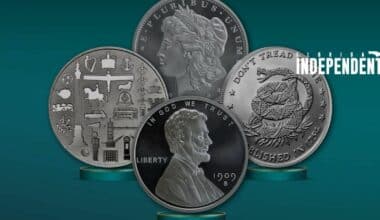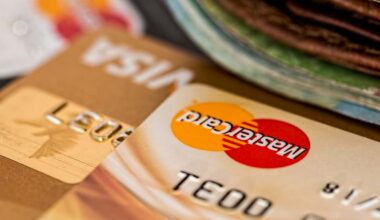Are you interested in collecting U.S. coins?
Coin collecting is the oldest hobby and can be among the most lucrative hobbies. It also stands out as a way to study and preserve history in the lens of currency. There’s even a field of study dedicated to the analysis of money.
This hobby may start when someone finds a unique-looking coin within a handful of spare change, or if they end up receiving a unique coin from a friend as a gift. You can glean a lot of reasons behind the push to collect coins, but what does a beginner need to keep going with this pursuit?
Today, we will share some tips to help fledgling coin collectors start their collection. Read on to learn more.
Table Of Contents
1. Start With Something Small and Simple
For beginners collecting different types of coins, make sure to start with something that you can manage. By starting with a few coins, you can also take this opportunity to learn as much as you can.
Start learning about the basics and understand how to appraise and grade the coins. Doing this allows you to assess if the coins are in perfect condition, or if they are too battered to identify.
The other reason why you should start small is that it gives you a specific set to work with. You know what to start with and what set of coins you should aim to work on. For example, you can go for the Lincoln penny set as a starter.
Starting small like this helps you adapt to managing a bigger collection in time. It’s a great way to build up your skill as a collector along with the size of your collection.
2. Learn About Coin Grading
Another crucial aspect of collecting coins is in knowing how to grade them. Coin grading is a system that helps determine the preservation state or the wear of a coin. You can see if the coin is still in great condition or if the coin was too battered after circulation.
Coin grading can help you identify if the coin counts as circulated or uncirculated. You would encounter abbreviations that describe the grade of the coin. For example, EF stands for “Extremely Fine,” while AU stands for “Almost Uncirculated”.
When grading your coins, make sure to have an excellent light source. Get a magnifier, too, to see the finer details of the coin. These coin collecting supplies help you become accurate in assessing the coin’s condition.
3. Exercise Proper Handling and Storing
Metals tend to give this impression of being a tough material. However, that is not the case for coin surfaces, which happen to be delicate and prone to damage. Also, different metals have unique reactions to the atmosphere around them.
This is where proper handling and storage comes into play. In storing coins, you have to use coin folders and coin holders that can shield these coins from the elements. Make sure that they have enough protection from humidity, heat and cold, and so on.
As for handling the coins, hold them with gloves on. If possible, also hold them by the edges.
4. Collect the Coin Types You Want
You have a lot of coin variants to choose from for your collection. When you start with your collection, go for the ones that you like. These can range from specific pennies or memorable centennial coins.
In this case, go for something that piques your interest. This could be either the design and look of the coins. You can also look into the history behind these coins. Or the history behind the years when these came into circulation.
You can also include rare military challenge coins. These items not only stand out as premier historical pieces, but they also act as mementos that represent whole units and platoons within the military.
Pick a set of coins that suit your fancy. From that point, you can build your collection piece by piece.
5. Take Your Time in Collecting
When collecting U.S. coins, you don’t need to rush. Take your time in searching and appraising. This way, you will find the coin that you want to add to your collection and be able to get it in its best condition.
Collecting coins can also hit your finances hard if you are not careful, especially when you rush your purchases. With these items, it helps to wait and see rather than going for the first coin that you see.
Be prudent and wait for the coin that has the quality and the price range that you seek. This way, you know that this is the coin that you would want into your growing collection.
6. Make Connections With a Coin Club
The immediate benefit of joining a coin club is how you can see other enthusiasts that share the same hobby as you. This helps in keeping your interest and passion alive.
With the many cities and towns within the United States, finding a local coin club to join in becomes an easy task. A good thing about this is that you can also see coin clubs that have specialties in their collection. For instance, you might be able to find a club that collects Liberty Sealed coins.
7. Coin Shops, Coin Shows, and Coin Dealers
This time, we now look into visiting these. While you can see great coins online, it would still serve you best to see the coins in person. Visit a local coin shop and check out their wares. Being there in person grants you the opportunity to inspect the coin up close.
Also, if you managed to get along with a trusted coin dealer, they can provide you valuable information that can help you with your purchase. As for coin shows, some would do more than put the coins on display. They would also have workshops and mini-seminars to help newbie collectors.
Start Collecting U.S. Coins Today
Ready to start your coin collection? Make sure to take note of these tips when you set forth in collecting U.S. coins. If you keep going on a steady pace, you might amass a worthwhile collection with historic value.
Did you find this article enjoyable? If so, you can also check out our other articles for more.


